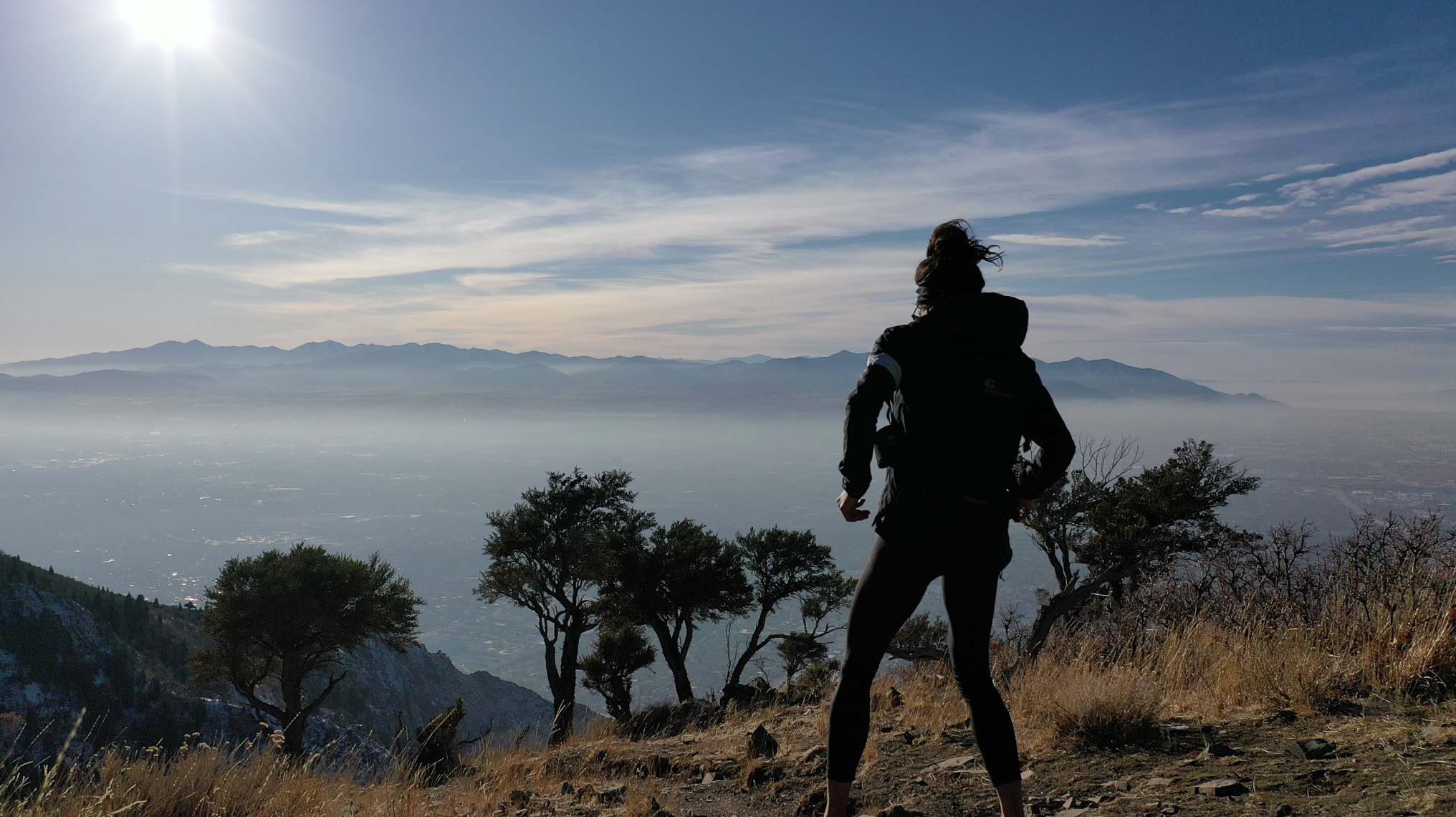
Stretching Your Second Heart
August 24, 2017
I Treat Every Patient Like an Elite Athlete
November 21, 2017Ray Cronise on Cold Thermogenesis, Intermittent Fasting, Weight Loss and Healthspan
by Madeline Carson – Medical Assistant
Final Kick – Ankle & Foot
If I wasn’t already impressed that the guest speaker on Dr. Rhonda Patrick’s podcast: Found My Fitness was currently on a 23-day water fast–medically supervised mind you, so don’t try this at home! — The fact that Ray Cronise held a very in-depth, scientific, conversation during the podcast for two hours was definitely incredible. I was shocked this human was functioning at the ability he was living off of nothing but good old H20…and zero supplements! You might be thinking dang, Ray Cronise has lost his marbles. I would have agreed with you until fully listening to the podcast. This former NASA material scientist, cofounder of the Zero Gravity Company, and author of the new book The Broken Plate, practices methods of dietary fasting, and cold stress techniques, to study the benefits of extreme stress on the body and how these stresses can improve our healthspans.
“You’re only learning when you’re wrong,” Cronise said, and this really drives home the necessity to take in change; adaption is the only way we grow. I’m by no means saying we all need to try to only drink water for 20 days, and neither was Cronise. He went to such relative extremes to study how the body can function in a state of being he calls “survival state”. He likes to think of the nutrition states in four levels: overnutrition, the normal diet consumed by the average healthy population, the survival block where our ancestors lived, aka diet restrictive, and under-nutrition.
After 23 days of no food, I would have assumed Cronise would be living on the under-nutrition side of his scale. Cronise’s blood panels however, all checked out in the normal ranges. All nutrients were at adequate levels. His lipid levels where elevated, but that is a physiological change expected to be seen since the body had to convert to a state of ketosis. This could suggest short term deficiency damage is irrelevant when one partakes in an intermittent fast; the vitamins and minerals we use for enzyme co-factors, immune system function, and tumor suppressant genes, do not deplete as quickly at we may have thought.
So now that we all know Cronise is okay, let’s get into the potential benefits of restrictive eating. Like I mentioned before, no one is trying to sell a no eating lifestyle. Food is essential, but maybe we have been so accustomed to a chronically fed lifestyle that is not necessary. Cronise argued his body was even working in a BETTER state than he would have been fed. Better in a sense that the body goes into a form of autophagy when it is exposed to stress shock. Autophagy is a phase where repair genes are stimulated to clear away damaged cells, sort of a way of cleaning house. In recent studies on mice, scientists observed autophagy activate within 48 hours of the mice’s fast. Autophagy is related to an anti-inflammatory response as well.
The podcast mentioned there is a link between inflammation and the gut, so maybe giving the digestive system a break leads to decreases in IBS, and other chronic stomach issues. Another way to help the digestive system with inflammation… fiber! Cronise explained that fiber fuels bacteria in the gut that relate to the immune system and inflammation process. The less time our bodies are dealing with inflammation effects, the more we increase our chances of longevity. A Japanese study witnessed lower levels of inflammation in test subjects up to 115 years old! Implying an inverse relationship between age and inflammation. Extending healthspan like the super centennials in the study is Cronise’s main goal to figure out. Healthspan being the ability to biologically function at a chronologically older age.
Another benefit with diet restriction is running on ketones, or fat as a fuel source. The good news is that Cronise claimed simple diet changes had him losing body fat at the same rate when he was water fasting.
What about being hangry all the time? Cronise explained that the hunger cues we associated with needing to eat are like withdrawal symptoms experienced when coming off of anything we put in our body in abundance. Those who practice intermittent fasting have the hangry symptoms subsided. With over eating and chronic metabolism diseases like diabetes coming into play, it is fairly safe to say our society has a problem with portion control and eating too much at the wrong times. Cronise talked a lot about how our circadian rhythm–the biological clock in which our body operates. Circadian rhythm is responsible for telling us when to sleep, when to wake up, and when to eat. We fail to listen to our circadian rhythm when we put labels on mealtimes.
Don’t eat just because it’s lunch time, or breakfast right when you wake up if you are not hungry. Most importantly we ruin or circadian cycle when we have those late night eats. Every now and again we get those cravings for a late-night epic burrito from Del-Taco (my favorite go-to when I was in college), but try to remember we are the most insulin resistant at night. With some work schedules nowadays, it is hard to plan food around those late nights at the office. This podcast introduced no eating as an option to late night eating.
Cronise also offered an alternative to sleep aids and metabolism boosters. Cold thermogenesis is another topic of interest Ray Cronise dabbles in. Shivering can be considered a form of exercise. It is our body’s stress reaction that produces energy for its heat by-product. Mild cold stress shifts the metabolism into fat burning. Cronise believes one’s metabolism cannot be broken. I was shocked to hear this. Metabolism instead can transition from burning more fats instead of carbohydrate, and this could be seen as ‘working faster,’ if your goal is weight loss.
So being cold can help us burn fat, but Cronise has also taken advantage of the cold to create a form of contrast therapy that makes the brain feel calm and resets the circadian rhythm for sleep. The method involves a shower and determination. For 2 minutes, you cycle between a 10 second warm/hot shower, then a 20 second cold. You do this 10 times, ending on cold, then try to get to bed with minimal lighting. What this does is increase the production of the hormone melatonin, which is released to help you sleep. The exposure to cold is something our society fail to experience with our heaters and blankets in the winter. Cronise argues that we need these exposures to cold, and hunger, like our ancestors, to reboot our bodies to function like they are supposed to.
We have adapted to an almost too comfortable lifestyle… I mean we have oranges already peeled for as at the supermarket for Pete sake! Our fully air-conditioned houses, and furnaces in the winter deprive our bodies from experiencing the environmental extremes we were designed to withstand. We function on a delicate trichotomy: proper sleep, environmental adaptation, and diet. If I learned anything from Mr. Cronise, it would be to DRINK MORE WATER. Dehydration and hunger symptoms are similar feelings, so it is easy to confuse hunger for being thirsty. Water should always be increased before any diet change. Also gradually going into a lifestyle change is always the best way to go, and to achieve long lasting results. Intermittent fasting isn’t for everyone. If weight loss is your goal, we always knew diet restriction was key. Now Cronise is suggesting that fasting can be used to help our bodies tap into our fat storages, promote autophagy, and get us on that path to having a better quality of life.



